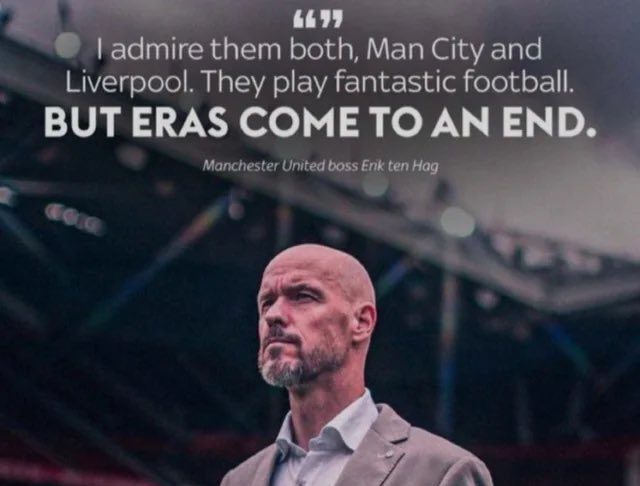Manchester United’s top management made the strategic choice to retain Erik ten Hag over the summer, despite vocal criticism from fans and the pressures faced by the Dutch manager. But now, nine games into the season and with the club languishing in 14th place, United have confirmed Ten Hag’s departure. The club’s move follows a season where they finished eighth, missing out on UEFA Champions League qualification—a significant financial blow cushioned only by their FA Cup victory, which secured Europa League participation.
The summer saw United’s first full season of a revamped operational strategy under Sir Jim Ratcliffe’s minority stake, obtained in late 2023. Ratcliffe’s investment gave him influence over footballing and strategic decisions, leading United to spend heavily on new signings, including Leny Yoro, Joshua Zirkzee, Matthijs de Ligt, Manuel Ugarte, and Noussair Mazraoui. However, with results falling short of expectations, United made the decision to part ways with Ten Hag.
Ten Hag was informed of the club’s decision on Monday morning, following a disappointing draw with West Ham United on Sunday. His dismissal carries financial consequences: he was reportedly on an annual salary of approximately £6.75 million, with his contract set to run until the summer of 2026. Although severance packages are often negotiated confidentially, basic calculations suggest that paying out two years of Ten Hag’s contract would amount to £13.5 million. While the final sum could be reduced through negotiations, the overall expense would increase if United must replace members of Ten Hag’s backroom team, many of whom joined during his tenure.
Ruud van Nistelrooy, a United icon, and Dutch colleague Rene Hake, who were appointed as joint assistant managers during the recent reshuffle, are set to handle interim duties, with Van Nistelrooy now in charge until a permanent successor is found.
New managerial hires often bring their own support teams, adding to operational costs. This restructuring process can be particularly expensive when staff members were recently recruited. Beyond that, if United seek a currently employed manager, significant compensation expenses may be involved, potentially exceeding £10 million if club owners negotiate firmly.
Manchester United’s foremost concern, however, lies in the potential risk of failing to qualify for the Champions League again. The club’s decision to dismiss Ten Hag reflects a broader hope of reversing on-field fortunes. The Champions League’s revamped format has increased its financial allure, with even a brief run in the tournament potentially bringing in upwards of £60 million through prize money and additional home matches.
Commercial partnerships add another layer of importance to Champions League qualification. Many of United’s high-profile sponsors pay premium prices for association with a globally recognized club, and Champions League exposure plays a crucial role in sustaining that visibility. Prolonged absence from this elite competition could diminish the commercial appeal of United’s brand, potentially impacting sponsor relationships and revenues.
The club’s financial strategy has also required a careful balance with the Premier League’s Profit and Sustainability Rules (PSR), especially over the last year. Transfers of academy graduates like Scott McTominay, Mason Greenwood, and Willy Kambwala have generated profit, while new acquisitions were structured with amortisation to spread costs over players’ contract durations. However, sacking managers is considered an exceptional expense and cannot be deducted under PSR guidelines.
While United are not expected to face significant PSR issues in the current financial year, the added burden of managerial severance costs—potentially exceeding £25 million—could constrain their financial flexibility. Though unlikely to result in direct scrutiny from the Premier League, these additional costs might impact the club’s January transfer plans and potentially limit future squad adjustments. Any new manager is likely to want their own set of players, further contributing to the ongoing financial churn associated with frequent managerial changes.
United’s management now faces the dual challenge of navigating the financial implications of Ten Hag’s departure while striving to secure a manager capable of revitalizing the squad and steering the club back into the Champions League fold.

















